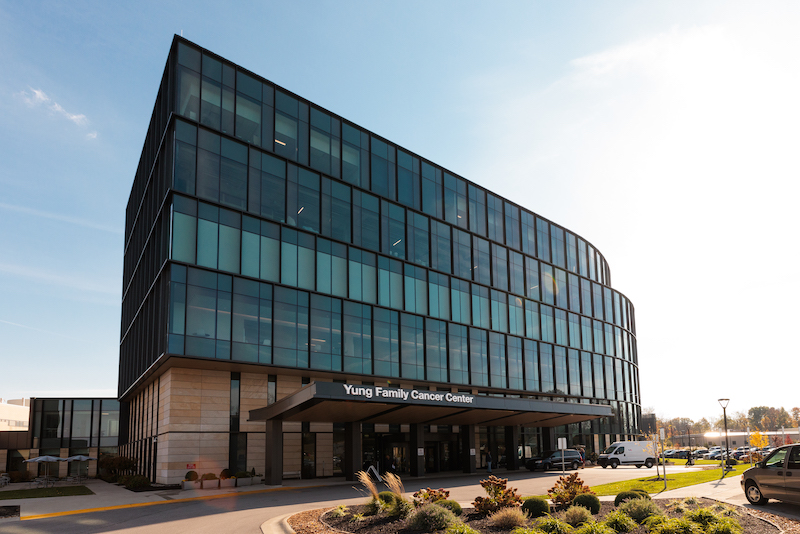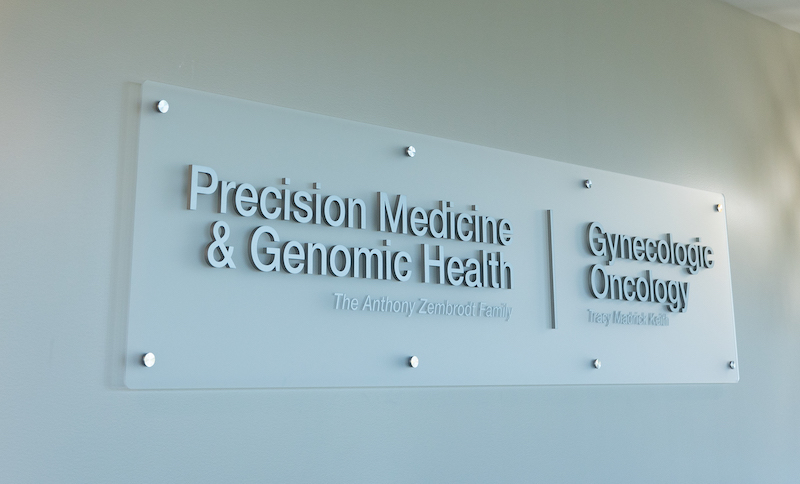
Photograph courtesy St. Elizabeth
Today, healthcare is shifting away from a one-size-fits-all approach toward personalized medicine designed around each person’s genetics, lifestyle, and health history. At St. Elizabeth Healthcare, Northern Kentucky’s most comprehensive precision medicine program makes this shift a reality. According to Jaime Grund, director of the Center for Precision Medicine & Genomic Health at St. Elizabeth, precision medicine means taking a holistic look at a patient’s health history. This includes genetic makeup, evaluating a person’s unique DNA and how it affects risk for disease and their unique response to certain treatments. The approach also moves healthcare from reactive to proactive and from general to personalized. “It’s about using your personal information to make care more individualized, targeted, and effective,” says Grund.
The difference between traditional healthcare and precision medicine Jaime Grund, Director of the Center for Precision Medicine & Genomic Health
Jaime Grund, Director of the Center for Precision Medicine & Genomic Health
Photograph courtesy St. Elizabeth
Traditional healthcare uses guidelines based on what works for most people with a certain condition. It often relies on broad categories like age, symptoms, or diagnosis to guide treatment. “Precision medicine looks deeper,” says Grund. “The goal is to better understand why someone may develop a disease, how to potentially prevent it or diagnose at its earliest stages, and what treatments will work best for them individually.” For example, someone with cancer might get genetic testing to help choose the treatment most likely to work for their specific type of tumor. Or someone with a genetic risk for a disease could take steps to lower that risk before they even get sick. The medical provider evaluates lifestyle, diet, and genetic makeup to determine the best course of action.
One of the biggest misconceptions about genetic testing is that it gives you a definitive “yes” or “no” about whether you will get a disease. More often, a genetic test shows probabilities or risks, not certainties. A positive result doesn’t always mean you will develop the condition, but it means your risk is higher than average. “Context matters,” says Grund. “Genetic testing is a powerful tool when combined with expert interpretation, but it’s not a crystal ball.”
What to expect at your first appointment
Depending on the patient’s situation, the type of appointment varies. According to Grund, the most common consultation is a hereditary cancer appointment, which is when a patient has a family history of cancer. In this case, the patient meets with a genetic counselor who can answer any questions about the testing. This consultation typically takes 45 minutes and includes a detailed review of personal and family history. If the patient chooses to undergo testing, the phlebotomist draws the sample the same day. Once results are available, the genetic counselor can guide the patient through any recommended next steps based on their genetic results. “It is a journey we take together,” Grund says.
 St. Elizabeth is making precision medicine affordable, accessible and actionable
St. Elizabeth is making precision medicine affordable, accessible and actionable
At St. Elizabeth, genetic counseling visits are a flat fee of under $100, and genetic testing typically costs less than $100 out of pocket. It’s also accessible. Patients don’t have to navigate a complicated healthcare maze to get tested or use their results. From first conversation to follow-up plan, precision medicine is integrated into everyday practice so the right people receive the right information at the right time, without barriers or delays. “By making genetic testing accessible and actionable across our entire healthcare system,” says Grund, “we’re empowering patients and providers alike to make smarter, safer health decisions.”
Learn more about Precision Medicine and Genetics at St. Elizabeth Healthcare.
